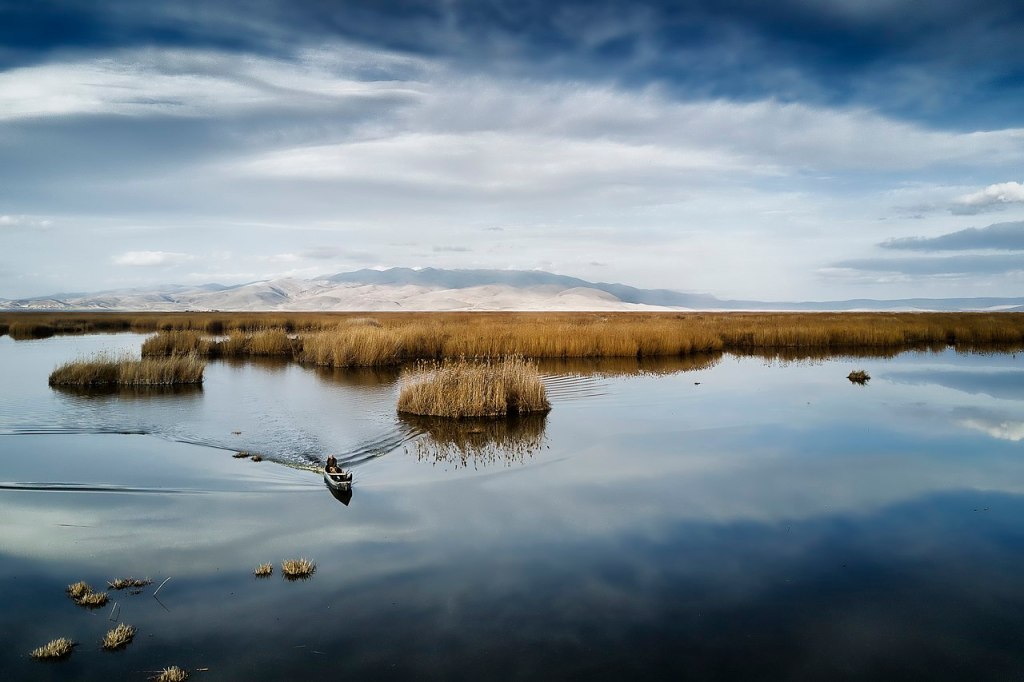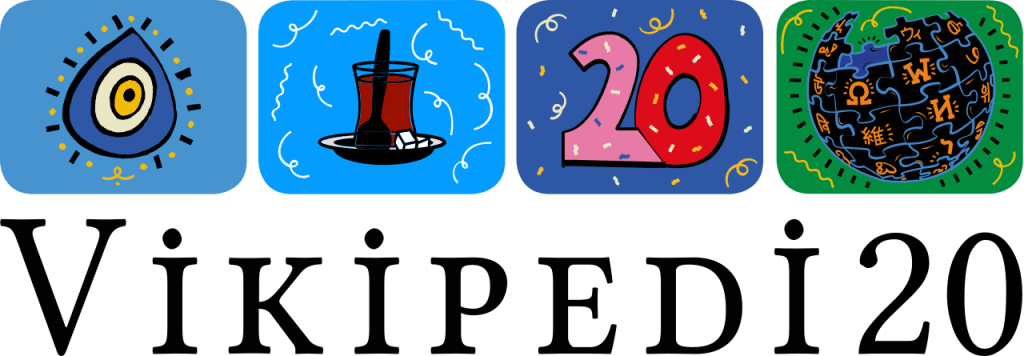
Image of Eber Lake by OzcelikMurat, CC BY-SA 4.0, the winning image of this year’s Wiki Loves Earth Turkey photography competition.
2020 was a year of unprecedented challenges for the Wikimedia movement and the world. However, amid an ongoing global pandemic, uncertainty, and tumult, Wikimedia volunteers persist, knowing that their goal to make knowledge free and accessible to all is more important than ever.
In the first year since access to Wikipedia was restored in Turkey and the COVID-19 pandemic took hold around the world, the Wikimedia Community User Group Turkey (WMTR) was able to carry out several ambitious programs to increase awareness of the project in Turkey and welcome new contributors to the movement.
We spoke with the Wikimedia Community User Group Turkey to learn more about their work over the past year and what they have learned since access to Wikipedia was restored in Turkey. As you might have guessed, they’ve been busy! Below are some highlights from our conversation:
New events and competitions
A notable milestone for the group was organizing the first Turkey edition of the annual Wiki Loves Earth photography competition. This contest resulted in over 3,600 stunning images of Turkey’s natural beauty being uploaded to Wikimedia Commons. An Art + Feminism event that the group organized in Istanbul led to the creation of 14 new Turkish Wikipedia articles.
The positive reception of these events helped the user group start conversations with numerous culture, education, and civil society organizations, leading to new partnerships — including with public health experts and librarian associations. The user group also collaborated with the Wikimedians of Turkic Languages User Group and organized the Wiki Loves Caucasus contest and Turkic Marathon editing contest together.
Build community in online spaces
WMTR previously did not have a tradition of regular community meetings or consistent contact with like-minded organizations. This changed in 2020: “We have continuously been in contact with like-minded organizations such as Creative Commons Turkey and OpenStreetMap team. Exchanging ideas on developing the knowledge sharing culture in the country made us stronger.” Further, they began to initiate regular community meetings at the end of 2019, and when the pandemic made in-person meetings impossible, they seamlessly continued the community meetings in an online format.
Leverage built-in video call tools and send materials in advance for better edit-a-thons
Some examples include allowing attendees to share their screen to better pinpoint technical difficulties and using chat boxes for peer-to-peer learning. “To run a successful online edit-a-thon we advise organisers to make three things available in advance: the list of suggested articles to work on, the list of online resources that might be useful, and the media files uploaded to Commons. We highly recommend working with a partner who is [an] expert on the theme of the edit-a-thon and who will provide media donations and digital sources.”
Share Wikimedia in schools
Using online platforms, the user group continued their Education Program with more than a dozen university courses. For the first time, they also met with a group of high school students to talk about contributing to Wikimedia projects. “We tell students how valuable their knowledge, opinions, and skills are for the world. We see that many already knew that Wikimedia projects are developed by volunteers, and some have discovered the edit button themselves, but they need outside support to build their courage for making changes and pressing the save button. Students commonly ask questions like ‘Who checks the edits on Wikipedia?’ and ‘Is it acceptable to reference Wikipedia articles in university assignments?’”
What’s to come in 2021 for Wikimedia Community User Group Turkey?
As the Wikimedia Community User Group Turkey looks to 2021, they intend to continue the great work they’ve done to build partnerships, welcome new groups to editing, and organize contests like Wiki Loves Earth.
“We are looking forward to making presentations and then edit-a-thons with the members of the Turkish Librarian Association at the beginning of 2021. We are also very excited about collaborating with an association of public health experts for improving health-related topics on Turkish Wikipedia in January. We can’t wait for making a presentation and activist women edit-a-thon at a national symposium of archivists in April.”
For Wikipedia’s 20th birthday, they plan to gather online for a virtual celebration. They have also started a Wiki Project where participants can add birthday wishes and give Wikipedia a “gift” by writing an article about their favorite subjects. See their celebratory video here!

The User Group told us that a big misconception they commonly encounter when speaking about Wikipedia with new audiences “is assuming that Wikipedia articles are written by ‘others,’ but not by ‘us’ — people within our own society.” In their numerous community-building programs, from edit-a-thons to informal gatherings to university presentations, the Wikimedia Community User Group Turkey helps give the movement a human face —at a time when connection feels more important than ever.
“We are not unreachable mysterious people! We are real people eager to share our all knowledge about contributing Wikimedia projects and cooperate on any project aligned with Wikimedia’s mission, and we are delighted to welcome new members.”
You can stay up-to-date with WMTR by following them on Twitter and Facebook. If you’re interested in getting involved with the user group, you can contact them at: wmtr at wikimedia.org.tr.
Thank you to the Wikimedia Community User Group Turkey for their time in submitting responses and translating this post.

Can you help us translate this article?
In order for this article to reach as many people as possible we would like your help. Can you translate this article to get the message out?
Start translation